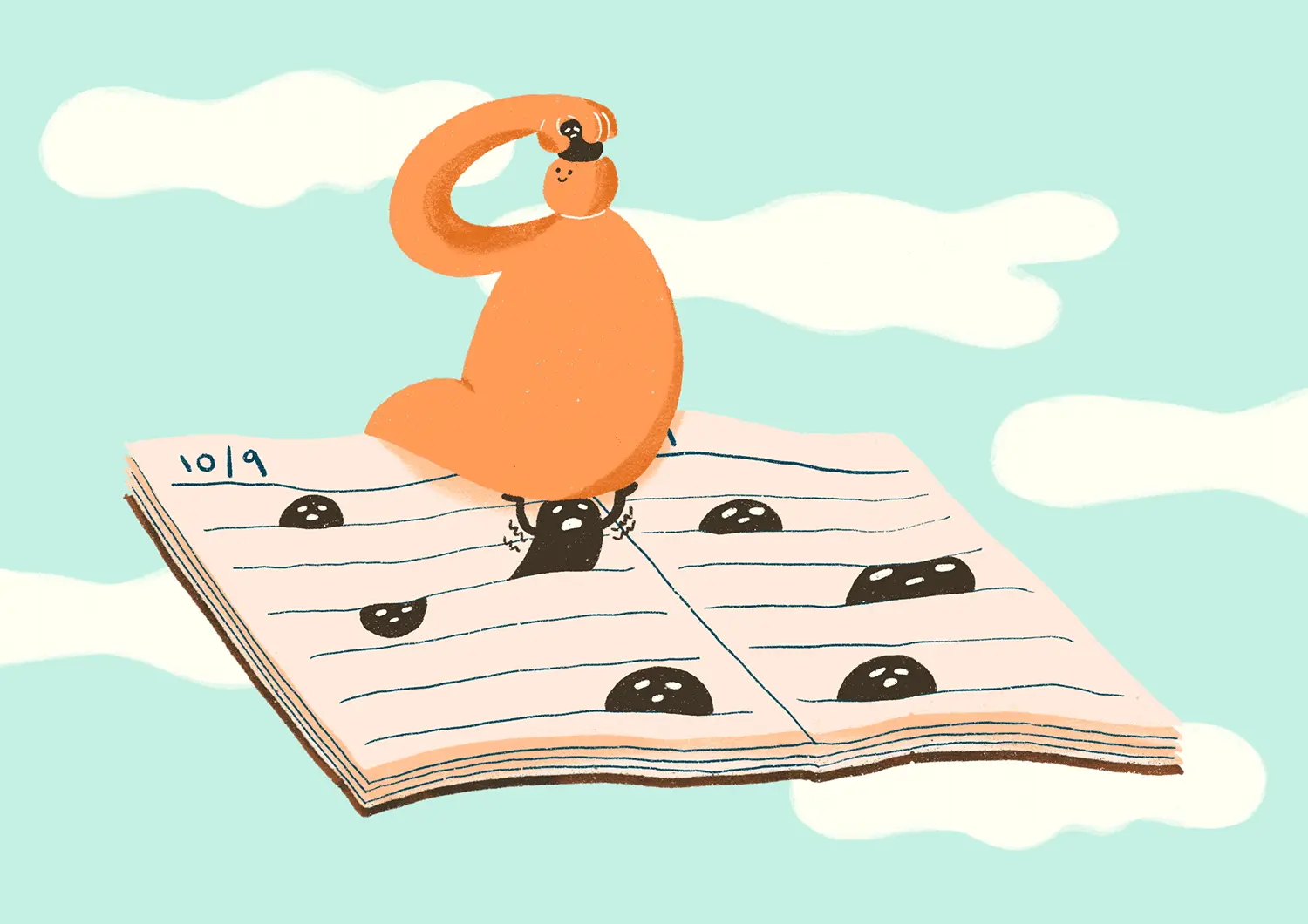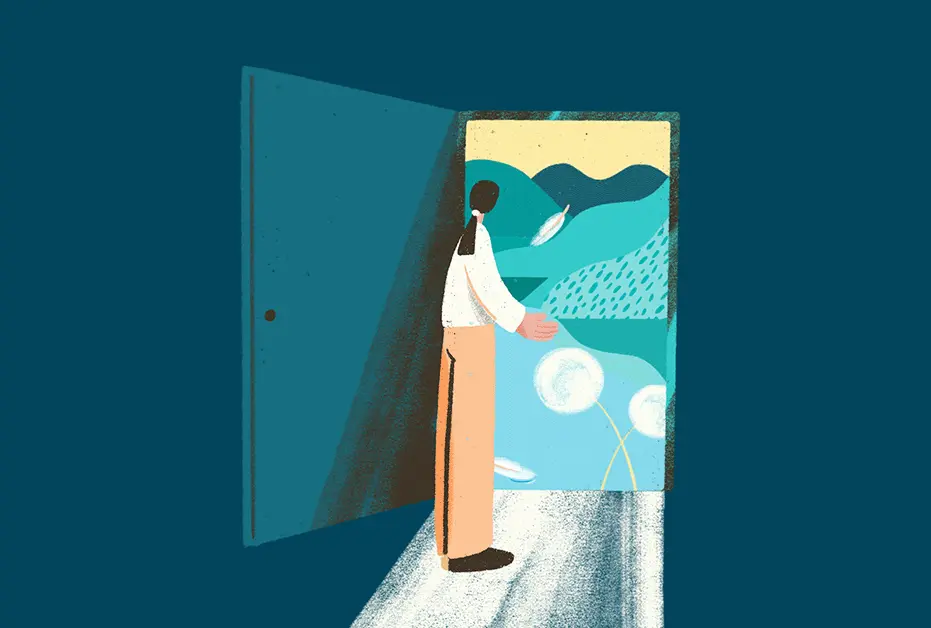Here is the inspiring journey of Kerstin Pilz, a writer.
In 2008, Kerstin Pilz's husband was diagnosed with terminal cancer. While providing dedicated care for her husband, Kerstin discovered that he had been having affairs since their wedding day. Following her husband's passing, she faced the additional challenge of being forced to evacuate her home due to the devastating Cyclone Yasi. Throughout these years, Kerstin found solace and strength in writing, helping her break free from the self-narrative of being a victim.
She described, “writing is like having a therapist in my pocket. When emotions threaten to overwhelm me like a tsunami, the blank page becomes a safe place where I can slowly and authentically unveil my stories. I become both the witness and narrator of my own experiences. I can even play the role of an inner editor for these soliloquies, crafting a new perspective from the raw materials life has bestowed upon me. The most pivotal relationship in life is the one we have with ourselves- words lend their ears to my emotions, accompany me as I embrace the small moments of daily bliss, and guide me through life's myriad challenges."
Like Kerstin, different stages of life offer us diverse narratives. It could be the jolt of transitioning from campus life to the professional world, the romantic adventures of exploring with friends, or the heart-wrenching sorrow of facing life's inevitable goodbyes. The ways we express our emotions vary from person to person- it can be through sharing with others, belting out a song, shedding tears of release, taking a walk, or even painting. Expressive writing is a scientifically proven method for emotional catharsis and reflection, allowing us to effectively channel and make sense of our feelings.

Writing as an Emotional Outlet
Research has shown that expressive writing can help us to increase awareness of our own emotions and feelings, as well as facilitate personal reflection when facing traumatic or major life changes.
Back in 1986, psychologist James Pennebaker conducted an experiment on expressive writing. In the study, a group of university students were divided into two groups and asked to write for 15 minutes in the lab for 4 consecutive days. The difference was in the writing topic - the experimental group had to write about their past traumatic experiences and their deepest thoughts and feelings about those events, while the control group simply described neutral everyday things like their room and shoes.
"
For the next 4 days,
I would like you to write your very deepest thoughts and feelings about the most traumatic experience of your entire life
or an extremely important emotional issue that has affected you and your life.
In your writing, I’d like you to really let go and explore your deepest emotions and thoughts.
You might tie your topic to your relationships with others, including parents, lovers, friends or relatives;
to your past, your present or your future;
or to who you have been, who you would like to be or who you are now.
You may write about the same general issues or experiences on all days of writing or about different topics each day.
All of your writing will be completely confidential.
Don’t worry about spelling, grammar or sentence structure.
The only rule is that once you begin writing, you continue until the time is up.
"
(writing instruction of the experiment)
The study found that participants in the experimental group experienced more distress and physical reactions, as well as increased emotions in the short term. However, several months later, their visits to medical centers decreased, and their physical and mental health improved. Researchers believe that frequently suppressing trauma-related feelings can accumulate stress on the body and may lead to excessive rumination and overthinking habits. By using expressive writing to confront trauma and acknowledge and understand emotions, it provides a safe and convenient outlet for negative feelings, reducing the accumulated stress on the body and mind.
Researchers like James Pennebaker have further extended this writing approach to different experiments, such as with college freshmen and those who have been laid off, and found similar benefits. However, recent meta-analysis studies on expressive writing have shown that short, unguided writing may not significantly improve depressive symptoms in individuals without post-traumatic stress. The research suggests that when the writing sessions are more numerous and the topics more specific, the benefits tend to be greater. Scholars are still exploring how providing more concrete writing guidance or incorporating therapist support may enhance the effectiveness of improving emotional well-being.

James believes that the key to expressive writing is changing perspectives. "If your perspective and narrative don't change over several days of writing, you're actually just ruminating." So how can we change our perspective?
You may try to think about:
- How would another person view your situation?
- How would your past or future self view this situation?
- What new insights do you have about the event as time passes?
Understanding the event, identifying the emotions it brings, and transforming it into words; trying to view the memory from different perspectives can help reduce the physical and mental stress caused by suppressing the feelings.
Each writing session can be set to around 20 minutes. As we reflect on the past, we may encounter inner wounds and experience a range of emotions. Please remember that you can take a break at any time during the process, and it may be helpful to share your feelings with someone you trust. If you feel that this expressive writing approach is not quite right for you, there is no need to pressure yourself. Go at your own pace and do what feels most comfortable.
If you're feeling drained from intimate or other interpersonal relationships, if you're struggling with self-doubt and feeling lost, if you can't let go of an experience or a person, if you want to organize an experience, or if you want to document how you're feeling in the moment - I encourage you to open up your journal. Let your thoughts flow onto the pages and find an outlet for them.
References:
Reinhold, M., Bürkner, P.‐C., & Holling, H. (2018). Effects of expressive writing on depressive symptoms—A meta‐analysis. Clinical Psychology: Science and Practice, 25(1), Article e12224. https://doi.org/10.1037/h0101749
Pavlacic, J. M., Buchanan, E. M., Maxwell, N. P., Hopke, T. G., & Schulenberg, S. E. (2019). A meta-analysis of expressive writing on posttraumatic stress, posttraumatic growth, and quality of life. Review of General Psychology, 23(2), 230–250. https://doi.org/10.1177/1089268019831645
Zachariae, R., & O'Toole, M. S. (2015). The effect of expressive writing intervention on psychological and physical health outcomes in cancer patients--a systematic review and meta-analysis. Psycho-oncology, 24(11), 1349–1359. https://doi.org/10.1002/pon.3802
Faccio, E., Turco, F., & Iudici, A. (2019). Self-writing as a tool for change: the effectiveness of a psychotherapy using diary. Research in psychotherapy (Milano), 22(2), 378. https://doi.org/10.4081/ripppo.2019.378
Baikie, K. A., & Wilhelm, K. (2005). Emotional and physical health benefits of expressive writing. Advances in Psychiatric Treatment, 11(5), 338-346. https://www.cambridge.org/core/journals/advances-in-psychiatric-treatment/article/emotional-and-physical-health-benefits-of-expressive-writing/ED2976A61F5DE56B46F07A1CE9EA9F9F
Pennebaker, J. W., & Beall, S. K. (1986). Confronting a traumatic event: Toward an understanding of inhibition and disease. Journal of Abnormal Psychology, 95(3), 274–281. https://doi.org/10.1037/0021-843X.95.3.274
Koschwanez, H. E., Kerse, N., Darragh, M., Jarrett, P., Booth, R. J., & Broadbent, E. (2013). Expressive writing and wound healing in older adults: a randomized controlled trial. Psychosomatic Medicine, 75(6), 581–590. https://doi.org/10.1097/PSY.0b013e31829b7b2e
Lepore, S. J., & Smyth, J. M. (Eds.). (2002). The writing cure: How expressive writing promotes health and emotional well-being. American Psychological Association. https://doi.org/10.1037/10451-000

